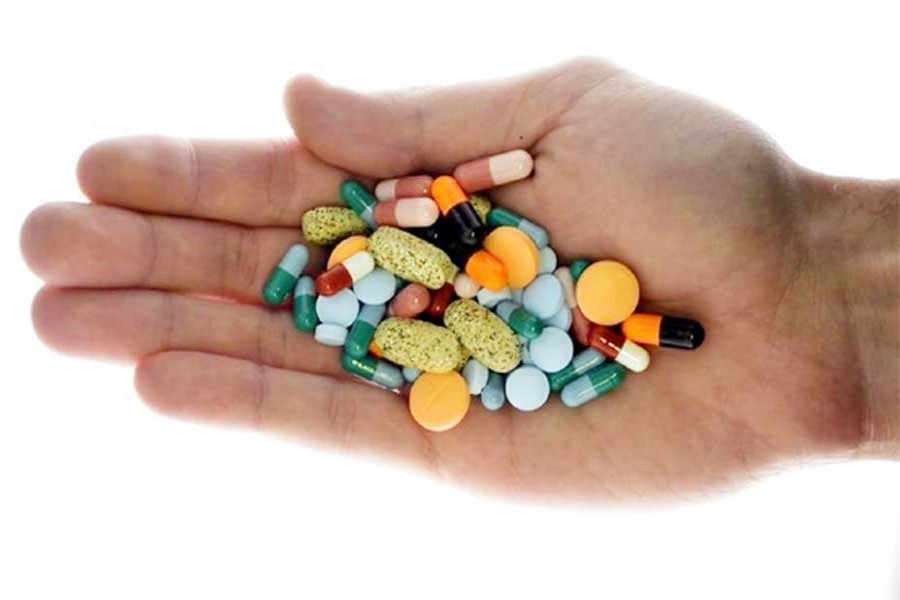The World Antibiotic Awareness Week is now being observed in many countries, including Bangladesh, under the auspices of the World Health Organisation (WHO).
This observance is unique in the sense that most WHO-sponsored observances are meant for creating awareness about diseases, not about any particular category of medicines.
The main objective behind the WHO's arrangement of this particular observance is making people aware of the importance of antibiotics in treating bacterial infections and growing resistance to antibiotic drugs. The resistance to antibiotics is now one of the world's most pressing health problems.
It is nothing unusual for some antibiotics becoming ineffective if those used for a long time. But what has been stirring up worries among the health professionals is that bacteria in greater numbers are developing resistance to antibiotics within a short span of time. Antibiotic-resistant bacteria are causing prolonged sufferings to patients or untimely death.
Medical professionals have warned time and again that overuse and misuse of antibiotics are among the key reasons for bacteria becoming drug-resistant. Every time an individual consumes an antibiotic drug, bacteria sensitive to the medicine die but frequent and irregular consumption help some bacteria develop resistance to that particular antibiotic. There is also a misconception that humans are becoming resistant to antibiotics, meaning that the antibiotic drugs do not work in their case. But the truth is that bacteria develop resistance against antibiotics.
People affected by viral infections like common cold, flu, most sore throats, bronchitis and many sinus and ear infections are seen consuming antibiotics on their own or being advised by doctors to do so. But the reality is that antibiotics are not effective against such infections and diseases. This kind of abuse of antibiotics does promote the spread of antibiotic resistance.
The problem of antibiotic resistance is not just confined to poor developing countries. The developed countries are deeply concerned as the problem is also hurting them. The instances of antibiotic resistance are also on the rise in recent years. Research work is on in a number of developed countries to develop far more effective antibiotics.
It is hard to think a world without bacterial infections and antibiotics as their remedies. But, much to the worries of physicians and medical researchers, more and more antibiotics are proving to be ineffective against bacterial infections. Researchers in developed countries are engaged in developing more and more effective antibiotics. But they are now not certain about their proven success rate over a long period as bacteria are increasingly becoming resistant to antibiotics through several ways.
The rate of abuse or misuse of antibiotics in Bangladesh, it is widely suspected, is very high, for there is no control over sale and consumption of the same. People are seen buying antibiotics without any prescription from registered physicians and consuming the drugs the way they feel it proper. Drug stores are also selling antibiotics without prescriptions violating laws and rules, for none has ever punished them for committing the offence. It is more of a free-for-all situation as far as sale and consumption of antibiotics are concerned in this country.
Some doctors are found not ready to take chances as they, at the first instance, prescribe a large variety of medicines, including antibiotics, with a hope that one of those would surely hit the bull's eye.
But the first and foremost effort on the part of patients and physicians concerned should be to avoid consumption of antibiotics unnecessarily. Healthcare professionals should try to ensure symptomatic relief without using antibiotics. They should prescribe antibiotics only after being certain about the bacterial infection through proper diagnosis. The relevant authorities do also need to take effective measures against the sale of medicines without prescriptions from registered physicians. This would help curb abuse of antibiotics to a certain extent.


